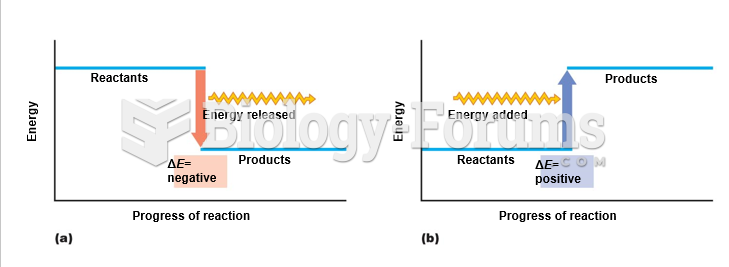|
|
|
Women are two-thirds more likely than men to develop irritable bowel syndrome. This may be attributable to hormonal changes related to their menstrual cycles.
There are over 65,000 known species of protozoa. About 10,000 species are parasitic.
Aspirin is the most widely used drug in the world. It has even been recognized as such by the Guinness Book of World Records.
Illicit drug use costs the United States approximately $181 billion every year.
Before a vaccine is licensed in the USA, the Food and Drug Administration (FDA) reviews it for safety and effectiveness. The CDC then reviews all studies again, as well as the American Academy of Pediatrics and the American Academy of Family Physicians. Every lot of vaccine is tested before administration to the public, and the FDA regularly inspects vaccine manufacturers' facilities.







